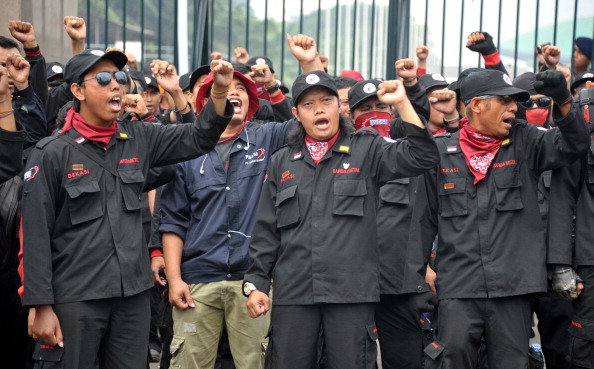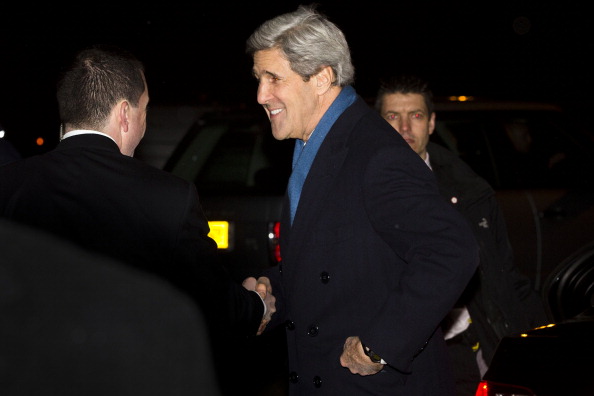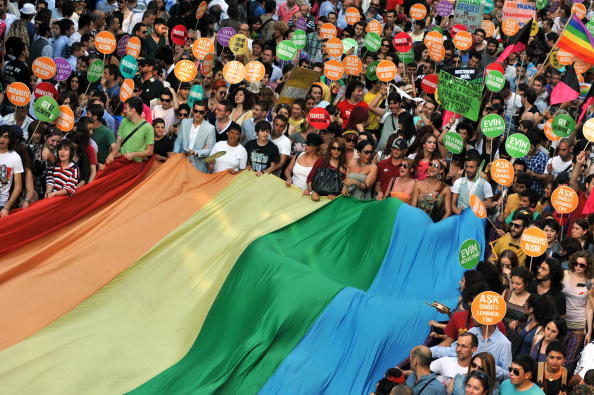
Indonesian workers shout slogans during a protest in front of Parliament building in Jakarta as lawmakers attend the plenary session to pass the mass organization bill. The workers unions vowed to appeal the controversial restriction to Indonesia’s freedom of assembly laws in the Constitutional Court (Photo Credit: Bay Ismoyo/AFP/Getty Images).
I worry about Indonesia. I worry that the democratic progress of the past few years is just slip slidin’ away. While Egypt and Turkey’s passionate and public debates on reform reach the front pages of our newspapers, Indonesia appears calm to the world. But, it looks like the government is worried.
Particularly alarming is a new law on Mass Organizations, passed on July 2, 2013. Suddenly, organizations operating in Indonesia are limited to eight purposes including maintaining the value of religion and belief in God; preserving the norms, values, morals, ethics and culture; and establishing, maintaining and strengthening the unity of the nation. Foreign organizations are required to obtain a permit from the Ministry of Foreign Affairs and must operate under new rules that include not disrupting the “stability and oneness” of Indonesia.



